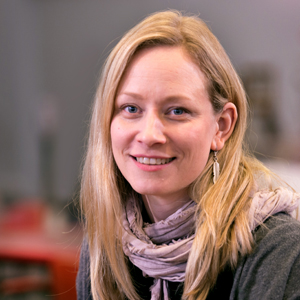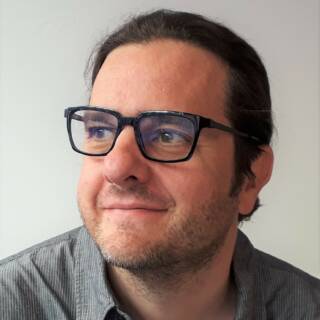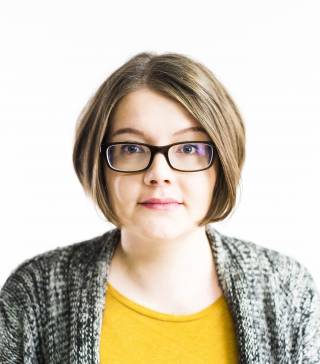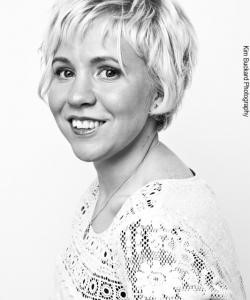Jenni Kuuliala, PI
 Jenni Kuuliala is a historian of late medieval and early modern disability, social history of medicine, and hagiography. She currently works as a senior lecturer at the University of Turku. Her research investigates the religious experience of ill health and disability in early modern Italy. As the PI of the project, she is also in charge of the practical matters.
Jenni Kuuliala is a historian of late medieval and early modern disability, social history of medicine, and hagiography. She currently works as a senior lecturer at the University of Turku. Her research investigates the religious experience of ill health and disability in early modern Italy. As the PI of the project, she is also in charge of the practical matters.
In her spare time, Jenni enjoys training agility with her two dogs, reading novels, and nature.
You can find Jenni’s professional website here.
Daniel Blackie
 Daniel Blackie is a disability historian and author (with D. M. Turner) of Disability in the Industrial Revolution. As our resident expert in eighteenth- and nineteenth-century history, Daniel’s role in the project is to hunt down and analyse historical evidence from the period 1700–1850. Daniel will begin his work as a senior research fellow officially in August 2022.
Daniel Blackie is a disability historian and author (with D. M. Turner) of Disability in the Industrial Revolution. As our resident expert in eighteenth- and nineteenth-century history, Daniel’s role in the project is to hunt down and analyse historical evidence from the period 1700–1850. Daniel will begin his work as a senior research fellow officially in August 2022.
When he’s not exploring archives or libraries, or hunching over a laptop, Daniel enjoys hiking, football (watching, not playing!), and losing himself in soul-soothing jazz.
You can find Daniel on Twitter @daniel_blackie.
Riikka Miettinen

Riikka Miettinen is a Senior Research Fellow at the Research Council of Finland Centre of Excellence in the History of Experiences. Her current research discusses social history of insanity in early modern Sweden. In this project she examines religious influences and activities in the everyday lives and treatment of people who had bodily and mental impairments in early modern Sweden (incl. Finland). Alongside disability history, Riikka’s research interests include history of madness, suicides, poverty and the landless in early modern Sweden and Finland.
You can find Riikka’s institutional website here.
Godelinde Perk

Godelinde Gertrude Perk is a literary scholar and postdoctoral researcher at the Faculty of Social Sciences, Tampere University and part of the ‘Lived Religion and the Changing Meaning(s) of Disability’ team. Her research focuses on medieval women’s writings in north-western European vernaculars and on medieval spiritual and literary culture, with a particular interest in encounters between modern theory and medieval religious literature. Her current project (‘Cripping Sisterhood’) examines the interplay between community and disability in collections’ of nuns’ lives (sister-books) from the Low Countries and nuns’ letters from northern Germany, approaching medieval disability through the precepts of modern disability studies. Before moving to Tampere, she was a Marie Skłodowska-Curie Fellow at the University of Oxford with an EC-funded MSCA-IF project, ‘Women Making Memories: Liturgy and the Remembering Female Body in Medieval Holy Women’s Texts’. She has published extensively on Julian of Norwich (c. 1343–c. 1416), Margery Kempe (1373–after 1439), sister-books, memory, and the body.
